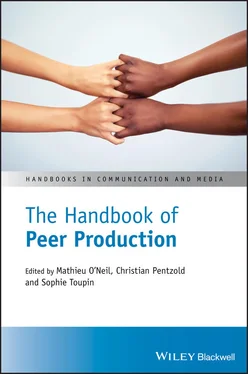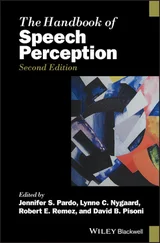Lund and Zukerfeld (2020) suggest that profit deriving from what they call the “enclosures model” seeks to increase the price of outputs, whilst profit deriving from the “openness model” seeks to decrease as much as possible the price of inputs. Copyright‐based production processes exploit productive activities during labor time, whilst “profit from openness is to a greater extent based on the exploitation of productive activities during leisure time” (Lund & Zukerfeld, 2020, p. 23). For these authors, firm adoption of FOSS is part of an emerging “Openness Ideology” representing a shift from a “profit from enclosures” model (based on the rhetoric of individuals, property, and exclusion) to a “profit from openness” model which extols the virtues of communities, inclusion, and freedom: the peer production of software opened the way for the wholesale capture by commercial interests of free labor. This was facilitated by the introduction of algorithms, which enable social media platforms to extract valuable behavioral data from participants’ “digital labor,” that is to say labor which does not think of itself as labor (Frayssé & O’Neil, 2015). A concrete example of the process whereby a commons is turned into a commodity can be seen through what Schöpf (2015) called the “commodification of the couch”: the commons‐oriented Couchsurfing hospitality exchange platform, which enabled the conversion of private households into shareable commons, attracted funds from venture capitalists in 2011, and subsequently started gathering and selling data on the activities of its users.
This brings us back to the critique articulated by Kreiss et al. (2011): in the end peer production amounts to little more than ultra‐exploitation. Yet the notion that unpaid participants are necessarily always being exploited should be reassessed. Red Hat, whose Fedora project combines waged and volunteer labor, has a business model which is only possible because products are created at a much lower cost than a fully‐waged workforce would entail. Does this constitute exploitation? Firms such as Red Hat are not appropriating FOSS code, which is accessible to all. Benjamin J. Birkinbine (2020) advances the notion of “incorporation” over that of “enclosure” which typically refers to the imposition of higher excludability on the common resource. Instead, “corporations have developed unique ways of transforming the products and processes of commons‐based peer production into commercial offerings without placing restrictions” (Birkinbine, 2020, p. 24) on the community’s access to their collective resources. As pointed out by Sébastien Broca (2013), this is quite different from the situation of proletarians who are dispossessed from the fruits of their labor. Here the exchange seems to be mutually profitable, even if the goods being swapped – economic profits for the firms, self‐realization for the developers – are different. It could even be argued that Red Hat creates an environment where developers can play with passion (Lessig, 2008).
Peer production projects originate from within what could be called a hobbyist sphere, characterized by two inter‐related traits: in contrast to salaried work, active users – not just CEOs and managers – can assume concrete strategic and operational control over projects; but these projects do not enable participants to make a living from their volunteer work. The exception to this rule is of course FOSS, where developers were either held to be able to convert the cultural capital acquired in communities into economic capital in the form of employment (Lerner & Tirole, 2002), or – with the adoption of FOSS by firms – simply be recruited to produce firm‐oriented free and open source software alongside volunteers. The fact that firms are paying the salaries of developers in FOSS projects was originally found to be notable (González‐Barahona & Robles, 2013; Mansell & Berdou, 2010; Riehle et al., 2014) whereas the wholesale integration of FOSS into dominant industrial circuits, partly through waged work, is now deemed complete (Eghbal, 2016; O’Neil et al., 2020a, 2020b).
The hybridity of this collective development (some people are paid, some are volunteers) has generated new institutional formations. Studies of organizational dynamics suggest that firms and FOSS projects are organized around different institutional principles (or “logics”): commercial logics for firms, communal logics for projects (O’Neil et al., 2020a). In order for these organizations to cooperate, discursive legitimation and concrete practical arrangements are required. An online survey of Debian project participants and interviews with Debian Developers found that a first phase of legitimation centered around licenses, in effect since the early 2000s, aimed to erase the distinction between work performed in firms and projects. In contrast a second phase of legitimation, centered around waged labor, put forward the notion that developers should be paid for work performed in Debian. Another finding was that firms were increasingly seeking to configure software to collect analytics in the form of statistics about which buttons users are pressing and which product features are being used, thereby potentially violating FOSS privacy principles, and laying the foundation for future conflicts and forks (O’Neil et al., 2020a).
The rise of the integrated firm‐project code development ecosystem can be partly attributed to the rise of the GitHub repository, though some projects have always been reluctant to use GitHub because of its proprietary status. This integration is evident in the business practices of IT giants and in the increasing propensity of end‐user firms – not just IT firms – to create Open Source Offices (OSPOs) which will act as open source advocates within the firm, and as firm liaisons with the code‐producing open source “communities” (O’Neil et al., 2020c).
5 The Handbook of Peer Production Aims to be Inclusive and Political
Like any academic Handbook worth its salt, this volume seeks to establish the state of the art of research in a given field of activity; to map origins, manifestations, achievements, and contradictions; to gather a group of contributors who are both knowledgeable and passionate. In addition, our approach is purposely inclusive and political.
When we say we wish this Handbook to be “inclusive” we mean that the commons‐based and oriented peer production approach towards generating and circulating all kinds of information goods, which fundamentally differs from individualistic models, from the competition of all against all, is occurring in an era where myriad forms of organizing and exploiting collective digital labor are in operation. It is hence necessary to pin down core elements of this alternative model of cooperation and governance such as cooperation and trust, transparency in production, collective democratic decision‐making, and the like. However, we also believe it makes sense to chart areas where some, though perhaps not all, these tenets have been adopted. So making peer production “inclusive” means casting the net wider and including a comprehensive range of cognate endeavors. In consequence, the Handbook traces peer production’s resonance in a broad number of fields, from a wide variety of perspectives.
When we say the Handbook is “political,” we mean that the chapters investigate and discover new possibilities for political action by re‐thinking concepts such as crowdsourcing, making, urban commons, and the partner state, or by conceptualizing the contradictions of autonomous production. Albeit in different guises, all chapters share a concern with how peer producing is intertwined with political issues such as hierarchical power, capitalism, gender, and race. By framing peer production as “political,” this Handbook offers the possibility of critically exploring the assumptions underpinning, and the contradictions animating, commons‐based and oriented peer production; and it also attempts to move beyond critique, towards praxis.
Читать дальше


![О Генри - Справочник Гименея [The Handbook of Hymen]](/books/407356/o-genri-spravochnik-gimeneya-the-handbook-of-hymen-thumb.webp)









